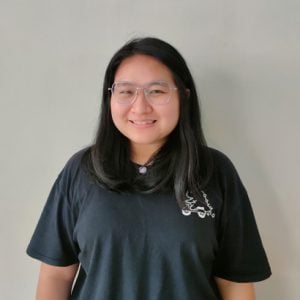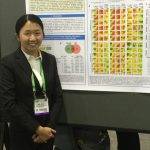The integration of humanities studies in the medical and health sciences programme is significant in shaping human values in students. The global importance of teaching humanities to health sciences students has been well recognised for its value in generating quality practitioners. Studies reveal that arts and humanities can provide future health professionals with essential qualities and characteristics of empathy and compassion (Hajar, 2018).
Considering this, the Centre of Bioethics and Humanities in International Medical University (IMU) organises a tri-annual Humanities Day in its compulsory modules (MPU) which permits students to actively participate in a wide range of activities in the human aspects through video documentaries, 3D model displays, art exhibitions, drama performances, as well as e-poster presentations.
More recently, the second tri-annual Humanities Day was held virtually in August this year highlighting the significant collaboration between faculty members and students. By conducting project presentations, the MPU semester students from the School of Medicine, the School of Health Sciences, and the School of Pharmacy are able to build relationships, offer new experiences, and additionally create space for ideas and innovations.
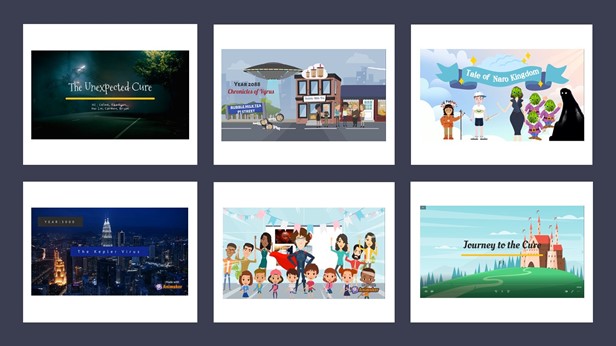
In MPU3362 Science Fiction, Fantasy and Horror, guided by Dr Sheba DMani, students wrote and created animated stories on the theme Speculative Stories (shown above) Inspired by the Pandemic. The animations were fun and interesting as they were a creative representation of the pandemic.
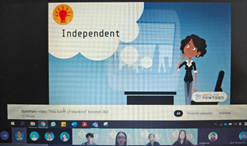
Meanwhile, in the MPU3382 Survey of Asian Literature facilitated by Carol Chin Koon Poh, students were involved in a role-play and produced video presentations of the selected literary texts. One student expressed, “this part of the module allows us to learn the literary analysis and provides us a platform to apply our understanding into practice.”
Students from MPU3352 Introduction to Media Literacy were also engaged with digital production on health-related issues. Under the supervision of Dr Arlini Alias, students presented mini-documentaries on Humanities and Medicine.“It was a challenging project for us to conduct during the pandemic, but it helps enhance our digital skills since technology is integrated into almost all fields nowadays.”
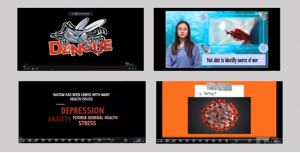
Another learning activity conducted during the 12th Humanities Day, students were required to construct informative electronic poster presentations for the MPU3342 History of Health Professionals Healthcare.
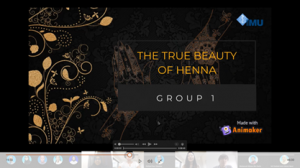
With the guidance of Siti Dahliah Mohd Nasir, these e-posters created awareness of the implications in the Malaysian and global perspectives.
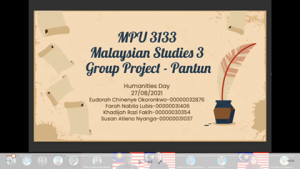
Above and beyond, students also get to experience conducting online forum discussions/webinars which elevate their critical thinking and communication skills. MPU3133 Malaysian Studies 3 enlightened student’s knowledge of Malaysian art and culture, and students from the MPU3123 Tamadun Islam dan Asian, moderated by Muhammad Atlizan Darlis, conducted dialogues on the issue of globalisation.
| Students’ Learning Experiences |
|---|
| Intriguingly, the humanities modules available in IMU offer students both active and interactive learning experiences. Through these modules, students get to experience diverse interactive learning activities which further hone their essential skills. All these modules provide students the diversity of experience by engaging them to not only reflect on their value and perspective but also to understand the value and perspective of others. Class activities expose the student to various collaborative learning approaches such as forum discussions, seminars, and workshops. These results are established based on the practice of presentations, performances, exhibitions, video productions, and other hands-on activities.
|
Everything considered, humanities indeed foster the enhancement of medical and health sciences students in critical and creative thinking skills that influences their relationships with others professionally. It is a reflection that allows an individual to evaluate one’s thinking through experiences of representations, prejudices, emotions, and values.
Written by Dr Arlini Alias, Programme Director (MPU)






